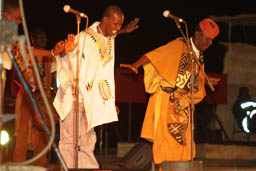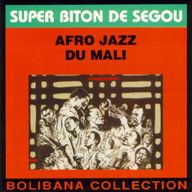I see that our friend Joe of the Dissertation highlights this on R3OK:
"An early use of the term world music was by Ronald Stevenson. His book Western Music - an introduction (Kahn & Averill, 1971) contains a chapter entitled Towards World Music.
A rather different meaning than that "invented" in the Empress of Russia in the mid-1980s, but which may be of interest, nonetheless.
The ethnomusicologist Robert E. Brown is credited with "inventing" the term.
http://www.signonsandiego.com/uniont...1j11brown.html"
But I'm becoming intrigued by Jean Jenkins GT for surely before any labelling there was a greater truth brought to us by the collectors and the archivists. Were they dusty or more like explorers? I almost think of "Born Free" when I see that photo of her.
In fact, am I the only one to think that there are some similarities between Jean and Lucy?
I would quite like to be an ethnomusicologist when I grow up but has it all been said and done?
"An early use of the term world music was by Ronald Stevenson. His book Western Music - an introduction (Kahn & Averill, 1971) contains a chapter entitled Towards World Music.
A rather different meaning than that "invented" in the Empress of Russia in the mid-1980s, but which may be of interest, nonetheless.
The ethnomusicologist Robert E. Brown is credited with "inventing" the term.
http://www.signonsandiego.com/uniont...1j11brown.html"
But I'm becoming intrigued by Jean Jenkins GT for surely before any labelling there was a greater truth brought to us by the collectors and the archivists. Were they dusty or more like explorers? I almost think of "Born Free" when I see that photo of her.
In fact, am I the only one to think that there are some similarities between Jean and Lucy?
I would quite like to be an ethnomusicologist when I grow up but has it all been said and done?


 btw thanks for the jean jenkins link - looks like a very promising (and timely) programme.
btw thanks for the jean jenkins link - looks like a very promising (and timely) programme.










Comment